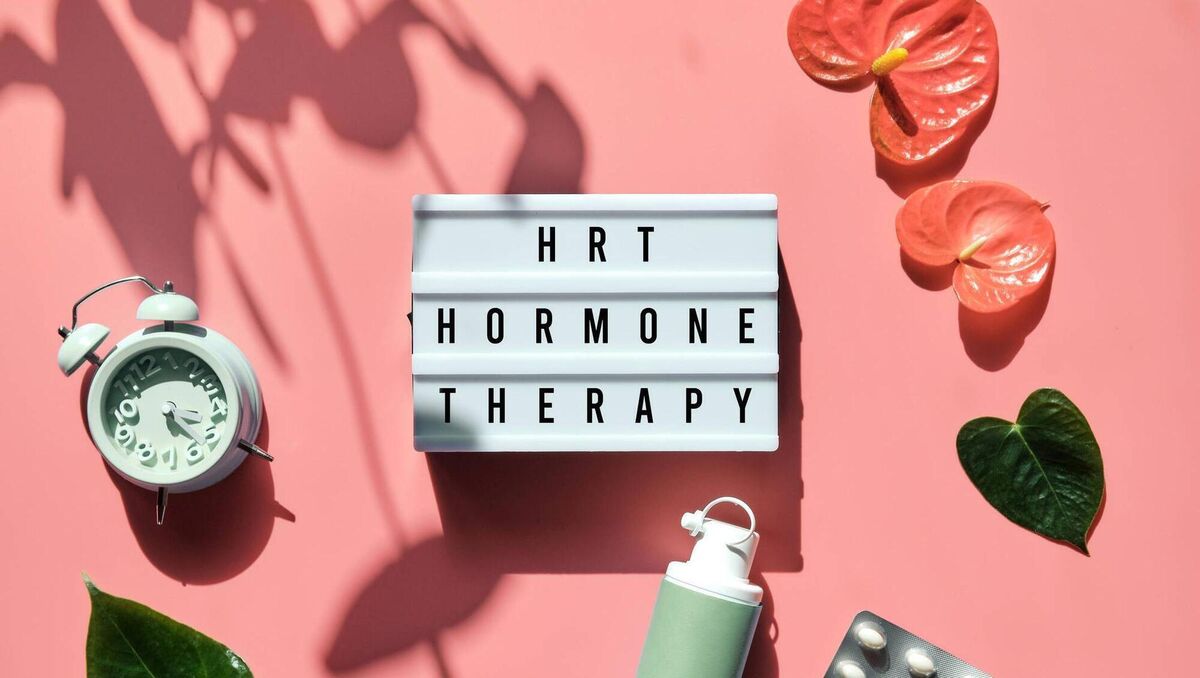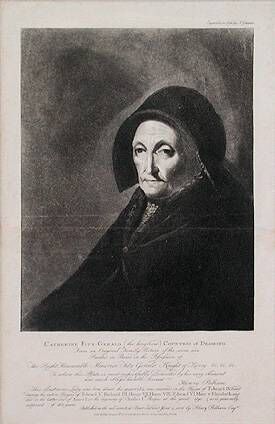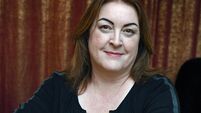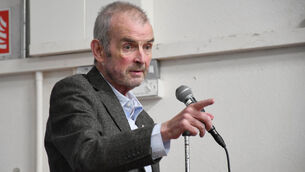Clodagh Finn: Free HRT is great — but what aren’t we being told?

It is a blessed turn of events that this normal stage in a woman’s life has emerged from the shadows, but increased visibility has brought with it a tendency to equate menopause with disability and disease. Picture: Anna Watson/Alamy
The Government plan, even if delayed, to introduce free HRT (hormone replacement therapy) is a wonderful thing, but shouldn’t we also be talking about the downsides?
“What downsides?”, says you, who can now banish crushing fatigue, hot flushes, night sweats and a bewildering array of once-taboo menopausal symptoms with the slap of a patch to the thigh.
I know women who say they will continue to take those life-transforming patches until they are forced from their rigor-mortis-hardened fists.
Those are women who have carefully considered the risks versus the benefits and made informed decisions. I salute them.
Those same women (myself included) will also say, almost without exception, that they have gained a few pounds since going on HRT. I’m not saying that is negative; we have far too much commentary on women’s weight as it is. I’m simply observing a side-effect that continues to be entirely ignored in the literature.
The HSE website says this on the matter: “There is no evidence that shows HRT causes weight gain.”
And yet I know of many other women (again myself included) who lose weight when they stop taking HRT. I mention it only to illustrate the fact that women’s experiences are often dismissed as anecdotal. It can take decades before patient feedback is fed into a clarifying scientific study, if at all.
At least there have been robust studies which warn hormone replacement can increase the risk of breast cancer. Here are the HSE figures. For every 1,000 women, age 50 to 59, who take combined hormonal therapy, 27 will develop breast cancer. For those who do not take the therapy, 23 will develop breast cancer.
That might be a relatively small number but not for the four women who will go through it.
Studies have also shown waiting to begin hormone therapy can reduce the risk of breast cancer.

Should we not then be asking this question: In making HRT free and, as a result, much more accessible, are we encouraging women to take it earlier?
And this one: Does the wide and free availability of HRT reinforce the idea that taking the drug is a standard response to the onset of menopause?
Don’t get me wrong. I am not for a second — not even a nanosecond — suggesting women who need HRT should not take it.
It is a blessed turn of events that this normal stage in a woman’s life has emerged from the shadows, but increased visibility has brought with it a tendency to equate menopause with disability and disease. (Some people talk about raging hormones as if they were a bad thing; a woman of a certain age needs all the rage she can get. But I’ll come to that).
Back in the world of science and evidence, no less a publication than medical journal pointed out the dangers of framing a natural period of transition in a woman’s life as “a disease of oestrogen deficiency”.
Suggesting this ‘disease’ can “be eased only by replacing the missing hormones fuels negative attitudes to menopause and exacerbates stigma”, it said in an excellent editorial in March 2024.
It’s worth looking it up, if only to read this single paragraph: “Menopausal women can be strong, healthy, and happy… Menopause can also be a time for women to reassess their identities, to embrace this next phase in their lives and the freedom from menstruation and menstrual pain, and to challenge negative perceptions of older women, which are prevalent in some societies.”
Hallelujah! Make way for the glorious crone, although I say that with some trepidation in case some enterprising person will invent a new condition — Crone’s Disease, perhaps — and go about developing an expensive cure.
Then again, that’s unlikely to happen any time soon because the entire focus of the beauty industry has been on trying to keep the feared crone at bay. It is mind-blowing to count the number of times the words “anti-ageing” appear on products for women.
How can something be pro-ageing if it is designed to combat ageing? Trying to figure that out would put years on you.
But then, having years on you has many advantages. Yes, there might be a softening of the body but there is also a deep strengthening of the spirit. When you take the long view, or the longer view, the shape of things becomes much clearer.
For one thing, remember menopause, no matter how awful the symptoms, passes. If women choose to take HRT, perhaps they might consider it as a gateway drug to freedom. Beyond, in the sunny post-HRT uplands, women are free of the physical things — periods, pregnancy, hormones — that have made them commercial targets.
That renders them less visible, sure. And writer Victoria Smith certainly has a point when she writes in that women of a certain age are still seen as objects: “You’ve just changed in status from painting or sculpture, to say, hat stand.”
There’s a strength in being the invisible hat stand, though, as long as women are the ones to decide just what kind of hat they want to wear, post-menopause.

Maybe we should convene a kind of Conference of Crones to talk about the possibilities that now yawn out before us. Thanks to the same kind of medical advances that gave us relief from menopause, we are also living longer.
For a wonderful example look no further than Katherine Fitzgerald, the Countess of Desmond, the venerated elder who lived at her castle in Inchiquin outside Youghal until she fell from a cherry tree, aged 140, in 1604. (It pleases me no end to think that a woman of 140, some say she was 145, was game to climb a cherry tree).
And yes, the story doesn’t quite hold up when you start to count the years, although Sir Walter Raleigh himself, mayor of Youghal, claimed to have known the countess personally and he said he had proof of her age.
It was said she owed her advanced age to the apothecary, Old Thomas Parr, an Englishman who apparently lived until he was 152.
The secret? Parr’s Pills. “To women they are invaluable,” claimed. “They correct all the irregularities to which the sex is liable, and, by assisting the secretions, give such an healthy action to the organs as to give the colour of the rose to the complexion, and tone and vigour to the whole frame.’
Anti-ageing products have a very long history.
And yet, how wonderful we have the story of this older, bolder, tree-climbing countess. There were hundreds of women like her, who led and are leading powerful, fulfilled and inconspicuous lives. I’m torn between celebrating them and preserving the cloak of invisibility that can act as a super-power for older women.
Maybe we’ll keep it all under our hats until the Conference of Crones. You coming?















